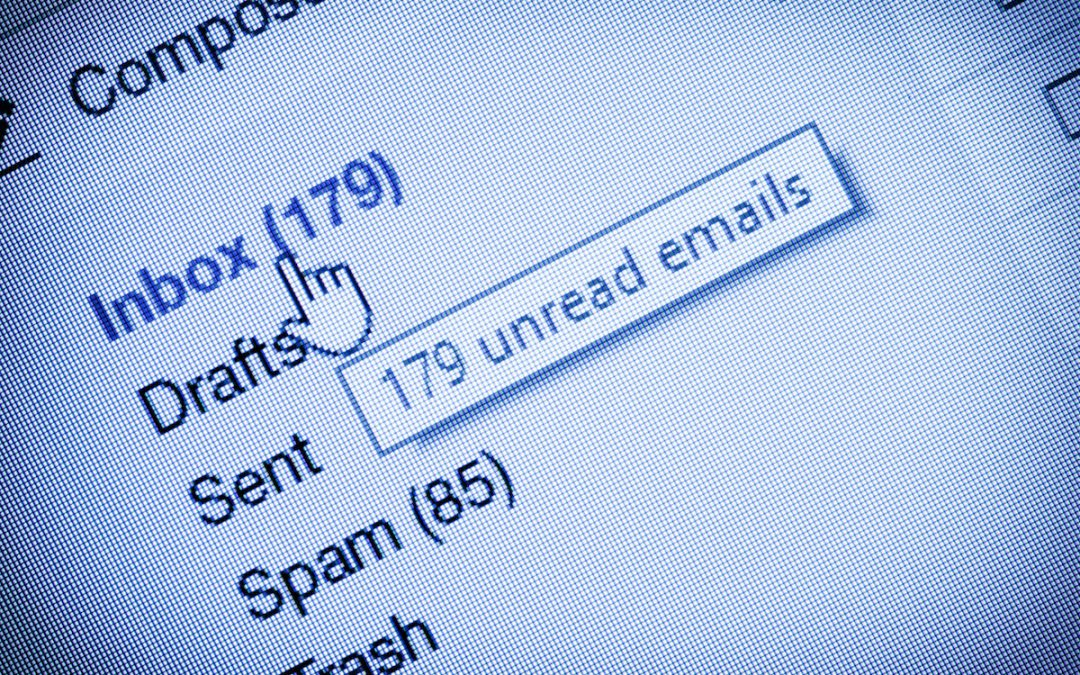
PROCESS YOUR INBOX LIKE A PRODUCTIVE PRO!
We have all been there. It happens to even the most disciplined and productive people. You sit down at your computer, open up your email and there you are, face to screen with an overflowing inbox mixed with some valuable information that you need to know, address or respond too and mostly junk that you get to wade through to find the important stuff. It’s a big deal, and it can be overwhelming. I have good friends who have thousands of emails in their inbox—with hundreds of them unread. You may be there right now.
“Email overload blows up deadlines, leads to miscommunication and damages careers.” — Mike Song
I have been in the same place too. Then I learned some simple processes to create a more proactive email management system. I am going to share with you three ideas that can help you conquer your email inbox too.
But before we get to the three ways to be more effective and efficient with your inbox, let me share some reasons why this is so important to your productivity.
Kevin Kruse, in his most read book, 15 Secrets Successful People Know About Time Management, shares the results of a survey by the McKinsey Global Institute which shows office workers spend up to
Another scientific study found that most people check email about every fifteen minutes, which adds up to
But that is not all! Did you know that according to one study by the University of California at Irvine, it takes an average of 25 MINUTES to resume a task after an interruption like an email? Just think how much time you can apply to more significant projects and your personal development by merely getting control of your inbox.
So, let me give you my three ways to take control of your inbox.
1. STOP checking your email, START Processing your email.
There is a big difference. When you check your email, you tend to scan it for important messages. The problem is you have not addressed what to do with all the other emails in your inbox. When you process your email, you decide on each email and put them in the appropriate place. I will show you how in my third way to take control of your inbox.
The big idea here is you only want to deal with each email one time. Read each email once, then take the appropriate action. If you don’t process your email, you are wasting precious time.
2. Process email as few times as possible!
The people who are the most productive open their inbox as few times as possible. Instead of keeping email open all the time, you should open it at specific times during the day. Personally, I try to process my inbox only three times a day. The first time is at 9 am, the second is around 11:30 am and the last time is at 4:30 pm, before I leave the office.
As a side, I do not process my inbox on my day off. I try to avoid letting as Kevin Kruse states it, “other people to put their priorities into your life,” during my Sabbath.
3. Use a system to process your email.
There are many ways; I am sure to treat your inbox. The system that I use, I learned from David Allen’s book, Getting Things Done: The Art of
Another system that I have recently discovered in the book, Personal Productivity Secrets: Do what you never thought possible with your time and attention… and regain control of your life, by Maura Nevel Thomas, is called the TESST system, a variation of the GTD system. You can read more about it in my post “Put Your Inbox to the TESST .”
So what do you do if you are currently one of those whose email inbox is out of control? I recommend you think about filing “Email Bankruptcy.” Michael Hyatt’s post, DECLARE EMAIL BANKRUPTCY AND GET A FRESH START is beneficial. Take a look, do the steps, and get a fresh start processing your inbox like a productive pro.



